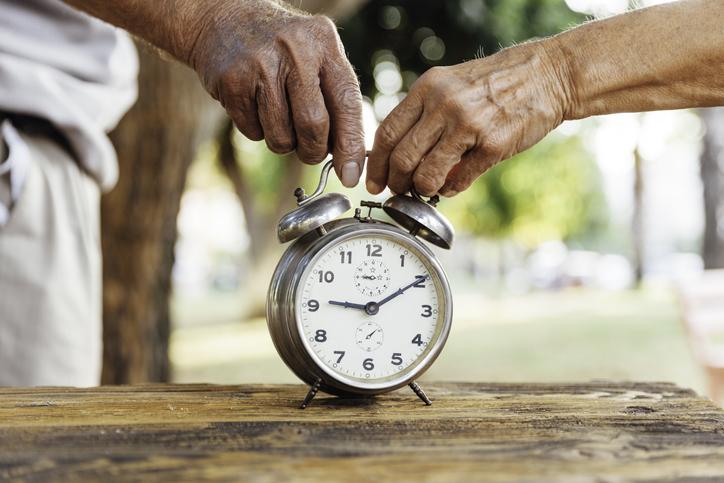Daylight saving time, also referred to as “springing forward” will soon be upon us. On March 13, in Michigan and across many areas of the country we will be turning our clocks ahead one hour. That loss of one hour can negatively impact many individuals, seniors among them. How does daylight savings time impact older adults? In many ways that we describe below.
Studies have shown that the incidents of car accidents and heart attacks increase in the days following the time change. It’s important to remember that time changes – whether forward or backward – affect health. This is especially true for older adults and those who may be dealing with chronic illness, dementia or Alzheimer’s disease.
Here are a number of ways the upcoming time change may impact the older adults who reside at Baldwin House Senior Living in Michigan.
- Struggles with sleep is at the top of the list. An interruption or disruption in regular sleeping patterns is one of the major issues impacting the population – especially senior citizens. The “losing” of one hour of sleep that will happen on March 13 will skew your body’s circadian rhythm and that can impact sleep in the days that follow the time change. This springing ahead could lead to a loss of mental acuity and the feeling of grogginess for a few days following the change.
- Heart attacks spike by more than five percent following the time change. This also occurs when the clocks “fall back” in November.
- Automobile accidents rise the Monday following the time change. It’s estimated that close to twenty percent more accidents occur the day after the time change. The reasons aren’t completely agreed upon, but experts agree it could be because of the loss of sleep and that leads to more sleepy drivers on the road and it could also be because people are rushing to get to work because they didn’t realize the time change was occurring.
How Does Daylight Savings Time Impact Older Adults?
How can you cope with the time change? Here are six steps you can take.
- Keep your regular routine. Don’t change the time you go to sleep or wake up to “compensate” for the time change.
- Don’t use caffeine or alcohol to cope.
- If you don’t usually nap, then don’t give into the urge to nap because the time has changed.
- Stay busy and get some natural sunlight. When you spend time in natural lighting your circadian rhythms will “catch up” to the time change.
- Eat your meals at the “usual” time. It might be tempting to switch your mealtimes to make up for that lost hour, but we encourage you to stick to your usual breakfast, lunch and dinner times.
- Keep to your regular medication times. Don’t change the time you take your prescribed medications simply because the time has changed.
Make sure you check your clocks and other timers in your apartments to ensure they have been changed forward; ask one of us to help if you need it.
Keep in mind that even though you’re losing an hour of sleep, the time changes means we are closer to spring and summer! Here are a few things you can do to help deal with the time change and look forward to the new season in Michigan.
- Pack away winter clothes. Don’t pack all of them away because you just don’t know what Michigan weather will bring, but you can look forward to your spring wardrobe.
- Plant some seedlings and they will be ready to plant out of doors when spring has arrived.
- Decorate for spring! Spring brings with it Easter and spring showers that will bring May flowers! Participate in our arts and crafts events and welcome the new season!
Visit a Baldwin House Senior Living community near you and ask what activities we have planned for our residents as we welcome autumn together. Baldwin House Senior Living is built upon the strong foundation of guiding families and empowering seniors.
Call us today to schedule a visit. We’d love to meet you or your loved one!

